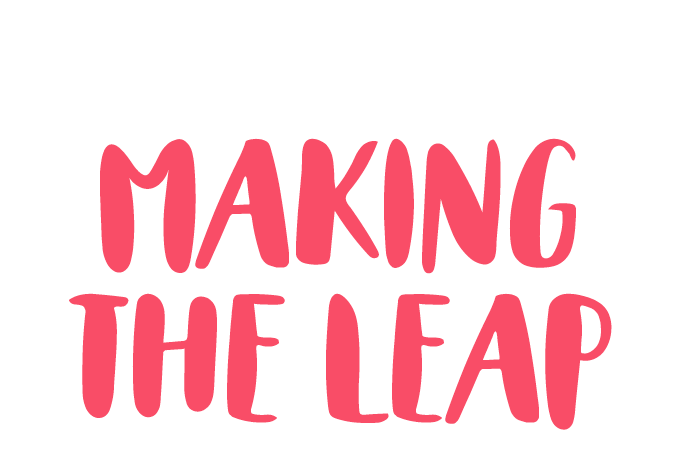How can we make the best possible decision?
This question dates back centuries. It is human nature to ask oneself, “What should I do next”?
To tackle this age-old question, we’ve spoken to a range of mental health experts who share their top tips to help you make your next decision—with confidence.
1. Watch for Signs
When you have an uneasy feeling in your gut it’s speaking to you, telling you that where you are at is no longer working, or what you are about to do is not the right choice or timing.
If you feel like life is a constant struggle and you can never get ahead, it might be time to consider that what you are currently doing is not the most beneficial path.
When things are in alignment, and the sailing is smooth, we call this flow. That’s when you know the path you are about to choose for your future is the right one. This includes relationships, jobs, buying a house or car, or choosing a hobby.
~ Dawn Burnett, CSA, Transformational Divorce Coach & Wellness Strategist in the Media, and Founder of A New Dawn Natural Solutions, Inc.
2. Know Your Goals
The best way to make decisions for your future is by knowing your goals. From there you can work backward. Keep in mind that there will often be a multitude of ways to reach your goals, some more efficient than others.
While it’s okay to get help from others, not listening to your own instincts might deter your life towards a less empowering direction. If you choose a direction that may not be as cost-effective or fast, the tradeoff can usually be written off as another learning experience.
~ Adina Mahalli, Certified mental health consultant and relationship expert writing on behalf of Maple Holistics.
3. Use Risk Calculation (& Don’t Put All Your Eggs in One Basket)
It is crucial to calculate the risk factor before making any decision.
If the chances of success are more than 75%, then, in my opinion, it is worth giving a shot. I practice this personally, too.
Most importantly, do not lay all your eggs in one basket. Even the worst-case scenario should not have the tendency to turn your life upside down.
~ John Parrott, Co-founder of Relaxlikeaboss which teaches people how to reduce stress and relax in a busy world.
4. Look Within
I believe all major decisions should start by looking within. Your inner self always knows what will lead to fulfillment.
To find out what your inner self thinks, go somewhere quiet, lay down and close your eyes. Take a deep breath and ask yourself what you would do next if there was nothing stopping you. Wait for the answer.
If you don’t hear anything, that’s ok. Tell yourself you know you’ll get the answer soon. And you will. It’ll pop into your head when you least expect it. Then take the first small step towards making it happen.
~ Erin Werley, Inner Voice Coach, Author and Founder of www.erinwerley.com.
5. Write Yourself a Letter
Write a letter to yourself now, from your future self.
This activity requires a person to dream big and ask themselves, “If I can create whatever I want in my life what will that be?” And what advice will the ‘me’ from 20 years from now give to the ‘me’ right now?
Be sure to include your strengths (talents and natural gifts) and your dreams (your interests and aspirations.
~ Mandi Green, Certified Wellness & Weight Coach, and Founder of the renowned North Carolina based coaching program Eat Like You Love It.
6. Ask Yourself These Simple Questions
Making a decision about your future should be rooted in two factors.
The first is authenticity.
- Does this decision fit with you being true to yourself?
- Does it fit with what you believe, think, and feel?
The second factor is defined by whether or not this fits into what you believe is your personal mission.
- What is the thing you believe you are meant to do in life?
- Will this decision move you closer to it or will it move you further away?
It is that simple.
~ Barb Harvey, Executive Director of Parents, Teachers, and Advocates Inc, a parent development group in Atlanta, GA. BS in elementary education and MA in Early Childhood Education with an emphasis in parent development.
7. Create a Practical Pros & Cons List
If you have a problem or decision to make, the best thing to do is make a table with three columns, in the first column list all your options or solutions.
Then in the second column list the pros for each option/solution and in the third column list the cons. Then, look at the options and decide which one or two options you would like to do.
At this point, you can put a plan in place to make it happen and set a date to re-evaluate your choice and potentially choose to try another option/choice.
~Amy Elisabeth is a fitness coach and founder of amyelisabeth.co.uk.
8. Think Like You Just Won The Lottery
If you won the lottery right now what part(s) of your life would you change?
Relationship, job, city?
Change it.
~ Amanda Minton is a Wellness Business Coach and founder of amandaminton.com.
9. Determine if the Decision will Bring you Joy
Making decisions solely based on happiness may not always be the most mature way of doing things because happiness can be temporary and it is definitely subjective.
Joy is a state of being and therefore much different than simple happiness.
Look beyond the emotion of the decision and look at the financial impact.
Be realistic. Determine if you can afford the decision and live with the outcome. Don’t go by what you think you can make on the decision, but what you must make out of the decision. Then determine a plan for getting there.
So, now that the decision will bring you joy and financial peace, ask yourself how it will change your life. Figure out if the decision will change your family, your home, your employment, and your health. Weigh it all out. Do your homework and be responsible by making mature decisions.
~ Robyn Flint, Life Insurance Specialist & MS in Clinical Mental Health Counseling.
10. Narrow Down Your Choices as Much as You Can
By narrowing down your choices, you will reduce the amount of psychological energy you’ll spend trying to make a decision.
Next, get clear on what’s important to you and eliminate options that are not aligned with that. For example, if you know deep down you don’t want to commute an hour to work every day but you’re keeping it as a contender because it’s a great opportunity, eliminate that option.
~ Kellie Zeigler, Certified Applied Positive Psychology Practitioner and founder of kelliezeigler.com.
We hope you found these decision-making tips useful.
We’d love to hear from—what decision are you making? And how did these tools help you get closer to finding your life path?
If you need further assistance with fleshing out your next steps, please feel free to reach out to any of the specialists directly via their included links.
Happy path-finding!
This article was originally published at findingyourpathbooks.com.


